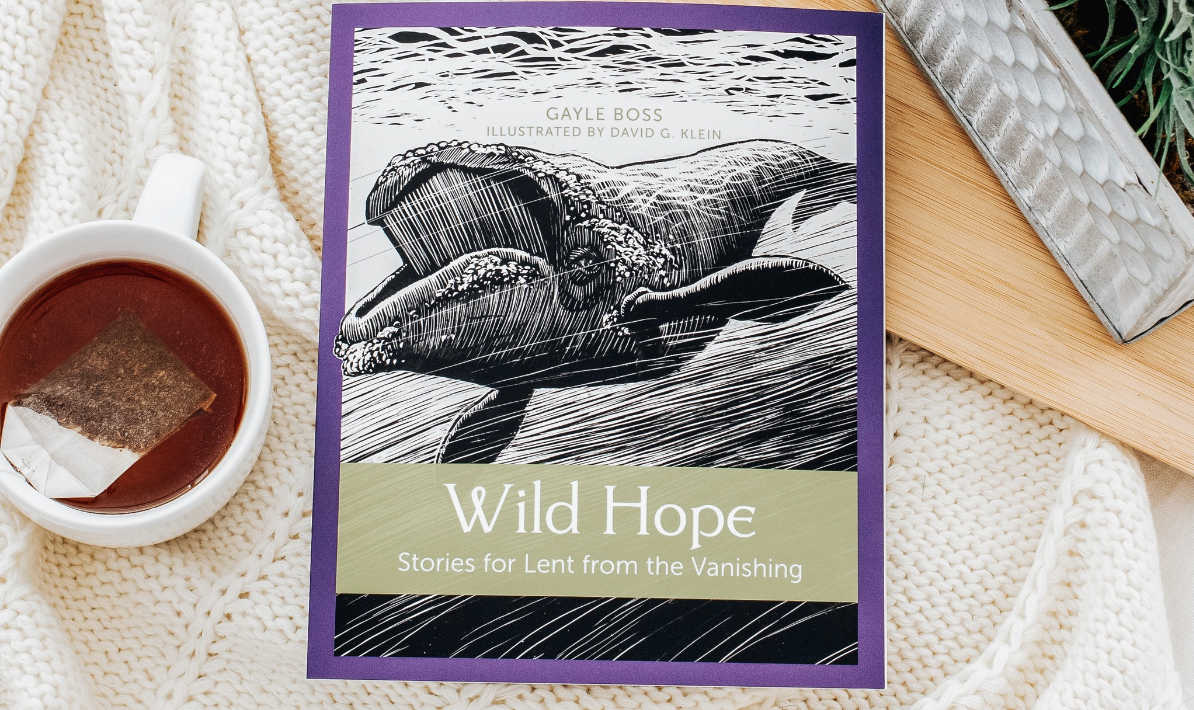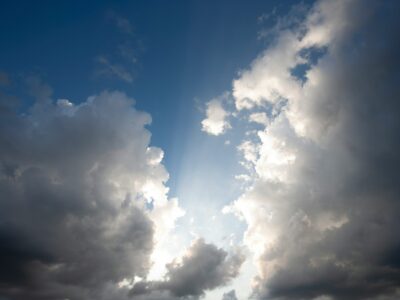There is a moment at the beginning of Acts that I think about all of the time.
After the apostles have received the Holy Spirit, Peter, the apostle who just 43 short days ago denied Jesus three times, stands up to address the crowd of Israelites. Some in the crowd had been laughing at the apostles while the apostles received the miracle of the Holy Spirit, saying they were drunk.
Peter speaks with authority there among the crowd. He quotes passages of scripture from the prophets and the psalms to show the Israelites what is happening right in front of them. His explanation changes everything. Peter illuminates this critical moment, drawing together the facts of the present with all that had been said in the past, and tells the crowd, “Therefore let all Israel be assured of this: God has made this Jesus, whom you crucified, both Lord and Messiah” (Acts 2:36 NIV).
Here is the moment I think about all of the time:
“When the people heard this, they were cut to the heart and said to Peter and the other apostles, ‘Brothers, what shall we do?’”
Acts 2:37
Everything the Israelites knew about their worldview was turned on its head in that one revelation. The One you crucified is Lord and Messiah! The people were cut to the heart.
I have known that feeling, that sudden stab of revelation, that pain of conviction. Now that I have seen, I cannot unsee the really real of the world around me. To do so would be to walk in direct disobedience to the Holy Spirit who convicted my heart in the first place.
We are about to enter the church season of Lent, a season of preparation modeled after the forty days Jesus spent in the wilderness. The time that Jesus spent in the wilderness scoured him, body and spirit. He fasted and prayed. He “was led by the Spirit into the wilderness to be tempted by the devil” (Matthew 4:1 NIV). And when he emerged from the wilderness, he began his public ministry.
For today’s Christ followers, Lent is supposed to be a season of spiritual purification, a time to renew our faith and draw closer to the One our hearts adore. It is a time to prepare us for resurrection—the new life that is promised through Christ’s suffering and death on the cross.
When I enter the season of Lent, there is a sense of foreboding that accompanies me. Wilderness is frightening. Preparation for something greater often means that God is about to reveal the contents of my heart and the shadows I’ve been hiding in, and that means conviction. Greater awareness. Cut to the heart.
And time to change.
Wild Hope: Stories for Lent from the Vanishing by Gayle Boss, Illustrated by David G. Klein
During Advent this last year, I followed Gayle Boss’ devotional, All Creation Waits: The Advent Mystery of New Beginnings. I was so moved by this devotional that it took no time at all to decide to see if Boss had any other works for devotional use.
Wild Hope: Stories for Lent from the Vanishing immediately grabbed my attention.
Boss begins the devotional with an introduction that answers the question, why should we listen to the stories of the vanishing animals of creation during the Lenten season? Why not just study Scripture more, revisit Jesus’ time in the wilderness, and cut chocolate out of our diets?
“The [Lenten] season means to rouse us from our self-absorption,” writes Boss. If you’ve ever attended an Ash Wednesday service, you’ve experienced the swift reminder of your own mortality as the priest or pastor smears an ashen cross on your forehead.
Nothing cuts to the heart of self-absorption like the realization your self is not long for this earth. Thus begins the season of Lent—you are dust, and to dust you are going to return.
Boss continues, “The purpose of Lent has always been to startle us awake to the true state of our hearts and the world we’ve made. Which wakes an aching, wild hope that something new might be born of the ruin.”
The stories in Wild Hope illuminate the lives of the other beings we’re traveling with on our bright planet. Each of the animals stands up, like Peter, to tell humankind, “No, we’re not drunk. Look at where we’ve been over the last hundred years. Look where we are now. Here is the reality! This is the good gift of creation God has given you, and you are killing it.”
They are testimonies that cut to the heart. They are testimonies that demand a verdict. They are testimonies that open our eyes.
And once we have seen, we cannot unsee.
“For the past century, whole species have been disappearing a hundred times faster, by conservative estimates, than in the past, because the choices about shelter, food, transportation, communication, and leisure that we humans make every day are pounding the planet. We are laying waste the animals’ only home. Which is the only home of human animals too,” Boss writes.
Conviction and preparation are hard and painful processes. Christianity, though, has never been a stranger to suffering. Suffering is part of the Way of Christ. Not for suffering’s sake, no. For the sake of the wild hope on the other side, which is resurrection and new life. There is birth. There is death. And then there is rebirth. That is what we have to hope for, the wild hope of resurrection, even in the midst of all this suffering.
Wild Hope offers the stories of four different animals each week that are vanishing from our planet as we speak. These particular testimonies provide deeper insight into the reality of our world. They illuminate our actions and challenge us to live with a greater purpose and vision for the heart of God in our daily choices and in our communities.
“The promise of Lent is that something will be born of the ruin, something so astoundingly better than the present moment that we cannot imagine it,” writes Boss. “Lent is seeded with resurrection.”
As followers of Jesus, we are a people of resurrection life. That resurrection life is for all God’s creatures. Lean into the Lenten season prepared to be cut to the heart, and on resurrection Sunday, rejoice that God is in the business of healing, redeeming, and restoring broken hearts, inviting sojourners like us along for the joyous, wild ride.





 Copyright
2024
Root and Vine
Copyright
2024
Root and Vine